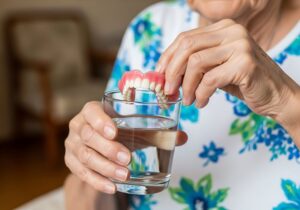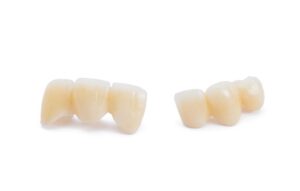
After a long and busy day, you might feel tempted to leave your dentures in your mouth overnight or simply rest them on your bedside table. However, soaking your dentures every night brings significant benefits that overrule any convenience you might otherwise enjoy. Indeed, removing and soaking your dentures nightly supports the longevity, cleanliness, and comfort of your prosthetic teeth. What are some of the specific reasons why it is good to soak your dentures every night? This blog post explains.
(more…)








